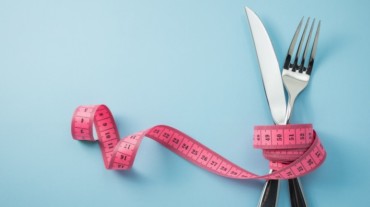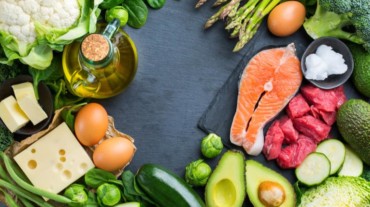
We are accustomed to a way of life wherein we desire instant responses and results—be it for our food deliveries or diet plans leading to instant weight loss. However, each individual differs in his/her body dynamics, therefore weight management program for every person should be bespoke to his/her body.
Losing weight in a healthy and sustained manner requires incorporating simple, scientific and practical strategies–ones that can only be given by an expert who understands the body mechanisms like a doctor, nutritionist, physiotherapist, or a fitness trainer rather than short-term quick fixes that fall short on their promises.
But since more often than not we rely on diet fads, we end up with nutritional deficiencies and negative health impacts. Wondering which diets we’re talking about? Well, read on:
Also read: Unable to achieve your weight loss goals? Follow this ultimate running guide to shed kilos
1. Supplement diets
The last couple of years have witnessed a growing reliance on supplements. Pills and powders, in the form of supplements are popped multiple times a day to not only fix the nutrient deficiency in the body but are also used as replacements for foods.
These supplements can supplement food but not replace it. That’s because nutrients are most potent when they come from food.
They are accompanied by many nonessential but beneficial nutrients, such as hundreds of carotenoids, flavonoids, minerals, and antioxidants that aren’t in most supplements. And of course, food tastes better and is often less expensive than supplements.
Moreover, in reality, you don’t really require supplements unless recommended by a nutritionist or a doctor in circumstances like your inability to make dietary changes, or if you have a genuine deficiency of a particular nutrient.
A well-balanced diet along with an active regime and a healthy lifestyle is sufficient to shed those extra pounds without any additional expense or health impact.
2. Liquid diets
Being on a liquid diet may seem like a good way to lose weight, and rightly so—but for how long? While these diets may prove to be effective in the short run, they are not good for long term weight loss approaches, simply because you can’t live on liquids forever.
Select Topics of your interest and let us customize your feed.
PERSONALISE NOWJuices and shakes in liquid diets lack adequate nutrients such as protein and fibre.
By not eating fibre loaded whole grains, fruits, vegetables, nuts and seeds, you are giving an invitation to constipation and other health problems.

Lack of protein will only make you lose muscle mass and not fat mass from your total body weight.
So, what do you achieve? Unhealthy, short-term weight loss which bounces back, once you begin a normal diet. Cutting calories drastically has only slowed down your metabolism to save energy.
Moreover, chewing gives you a feeling of satisfaction thus making you feel ‘full’—something that liquid diets lack. Is it worth attempting the “liquid diet approach” till a doctor or dutritionist recommends? Time to rethink!
Also read: 5 food swaps for your everyday diet that’ll help you get fit. You’re welcome!
3. Low-fat diet
This one might come across as a shocker, but not all fats are bad for you. There is no doubt that calories from fat per gram is higher than carbohydrate or protein, but fats form an essential component of a balanced diet and striking them altogether from your meals might lead to serious problems, such as depression, hypertension and skin disorders.
Healthful fats from the diet are important to aid hormone function, heart health, memory, and the absorption of specific nutrients.
While consuming foods low in fats can be better than doing nothing at all to reduce weight, intake of ‘healthy’ fats can be proven to be a much better option.
Few sources of these healthy fats are avocados, chia seeds, flax seeds, nuts and olive oil. Knowing the difference between “good” and “bad” fats, can help one make right, informed choices and enjoy the benefits of healthful fats. Why be devoid, when you can enjoy!

4. The starvation diet
Prolonged fasting has been one of the oldest fads out there and probably the unhealthiest too. Crash diets can show results for that vacation or a significant social event, you starved yourself for, but this lost weight—if not more—will be gained back with an increased rate once you’re back to your normal diet because this diet can lower your metabolic rate and make weight loss, an even more difficult task.
This happens because the body has gone into a conservation mode when you are fasting, burning calories more slowly than otherwise.
Since you don’t eat anything, you will be low on energy; you miss out on essential nutrients your body needs leading to health problems like dizziness, headaches, low blood sugar, muscle aches, weakness, fatigue and reduced bone density; and you’ll end up craving high-fat and high-sugar foods besides binge eating.
5. Single food diet
Cabbage soup diet, strict vegan diet, raw food diet–they all fall into this category of single or mono food diet. Any diet that rules out many food groups entirely is a recipe for disaster.
Eating a single food for days together, not only lacks essential nutrients that are found in other foods but it may also grow a person weary and irritable, thus increasing their craving for their favourite foods leading them back to their usual diet with a greater velocity.
Restriction is attraction; eliminating some foods would just make you want to have them even more than before.
Adhering to mono diets does not promote healthy habits and nor is it sustainable due to the monotonous eating pattern and restrictions associated with such diets.
So why crave and starve, when you can just enjoy all foods in moderation and as a part of healthful eating.
It’s about time to stop hopping from one diet plan to another and go visit an expert who knows your body mechanism and reactions.